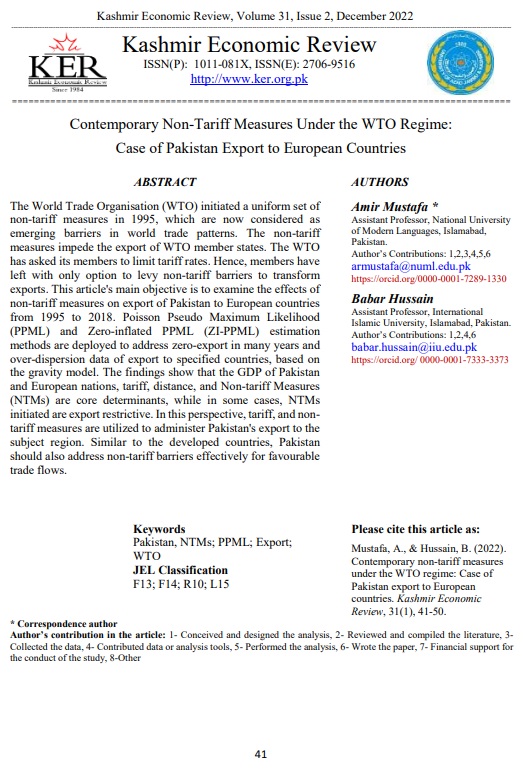Contemporary Non-Tariff Measures Under the WTO Regime: Case of Pakistan Export to European Countries
Contenu principal de l'article
Résumé
The World Trade Organisation (WTO) initiated a uniform set of non-tariff measures in 1995, which are now considered as emerging barriers in world trade patterns. The non-tariff measures impede the export of WTO member states. The WTO has asked its members to limit tariff rates. Hence, members have left with only option to levy non-tariff barriers to transform exports. This article's main objective is to examine the effects of non-tariff measures on export of Pakistan to European countries from 1995 to 2018. Poisson Pseudo Maximum Likelihood (PPML) and Zero-inflated PPML (ZI-PPML) estimation methods are deployed to address zero-export in many years and over-dispersion data of export to specified countries, based on the gravity model. The findings show that the GDP of Pakistan and European nations, tariff, distance, and Non-tariff Measures (NTMs) are core determinants, while in some cases, NTMs initiated are export restrictive. In this perspective, tariff, and non-tariff measures are utilized to administer Pakistan's export to the subject region. Similar to the developed countries, Pakistan should also address non-tariff barriers effectively for favourable trade flows.
Details de l'article

Ce travail est disponible sous licence Creative Commons Attribution - Partage dans les Mêmes Conditions 4.0 International.

